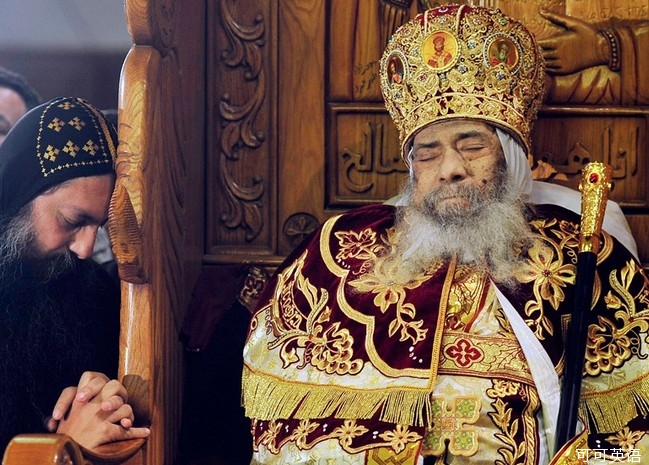(单词翻译:单击)

Last year ended as it began: with managers trapped in religious arguments.
去年的结尾和开头一样,都出现了企业管理者身陷宗教争端的事件。
In January 2013 the European Court of Human Rights ruled that one employee had a right to wear a cross at work while another did not. And at the end of December, Marks and Spencer, the UK retailer, faced boycott threats when a Muslim employee insisted customers go to a different till to pay for alcohol.
去年1月,欧洲人权法院(European Court of Human Rights)裁定一名雇员有权在工作时佩戴十字架饰品,同时裁定另一名雇员无权这样做。而在去年12月底,英国零售商马莎百货(Marks and Spencer)面临受到抵制的威胁,起因是一名穆斯林雇员坚持让买酒的顾客到别的收银台去结账。
These were British disputes but they resonated widely, reported from New York to Shanghai.
这些争端虽然出现在英国,却引起了广泛的共鸣——从纽约到上海,很多地方都对此有所报道。
My sympathy is with the managers: they are asked to judge questions that divide religious scholars while politicians and a febrile press inflame these workplace disputes to spread their own toxins.
我挺同情那些管理者的:外界要求他们在这些连宗教学者都无法达成一致的问题上作出评判,与此同时,政客和狂热的媒体还在这些职场争端上煽风点火,传播自己的有害思想。
Does the Muslim prohibition on consuming alcohol or pork mean employees can’t touch them, even when they are sealed in glass or plastic? Anyone walking through a supermarket can see Muslims who have no problem sliding these products past the barcode readers. For those who do have a problem, M&S says it has long had a policy of placing them in the clothing department or bakery instead. It told the Jewish Chronicle that it did the same with Jewish staff who did not want to handle pork or seafood.
穆斯林禁止饮酒和食用猪肉,是否意味着穆斯林雇员不能触碰这些东西,即使封装在玻璃或塑料容器中也不行?任何逛超市的人都能看到不介意拿起这些产品在条形码阅读器上一扫而过的穆斯林雇员。对于那些介意的穆斯林雇员,马莎表示,公司很早就制定了一项政策,也就是将他们安排到服装部或烘焙专区。马莎告诉《犹太纪事报》(Jewish Chronicle),对于不想经手猪肉或海产品的犹太雇员,公司采取了同样的做法。
To employ someone on a checkout who would not deal with all customers equally was a mistake, as M&S admitted – but that did not prevent an outpouring of press bile, and suggestions that customers were ready to take their business elsewhere.
正如马莎承认的那样,雇佣某个不愿接待所有类型顾客的收银员就是个错误。但这并没有阻止媒体倾泻怒火,也没有挡住关于顾客准备到别处购物的说法。
When these disputes flare, companies find themselves caught in culture wars that have little connection with their businesses. The result is that nuance is lost, along with any recognition of companies’ efforts to behave reasonably.
当这些争端爆发时,企业发现自己陷于文化战争之中,而这些战争与它们的业务几乎没什么联系。这些战争的结果是,微妙之处的差异不复存在,人们对企业合理化自身行为的所有认可也荡然无存。
Take the case of the British Airways employee allegedly sent home from work for wearing a cross, one of the subjects of the human rights ruling I mentioned earlier.
就拿英国航空(British Airways)那名据称因工作时佩戴十字架饰品而被停职的雇员来说吧,她是我上面提到的有关人权裁定的对象之一。
This was portrayed, once again, as an example of how companies strive to accommodate every religious whim – unless it is Christian.
这个案件再次被描绘成一个例子,表明企业如何竭力迁就各种宗教情结——除非它是基督教。
What happened was different. In 2004 BA introduced new uniforms, including an open-necked blouse for women, to be worn without jewellery. Any adornment for “mandatory religious reasons” was to be covered up if possible, but allowing male Sikhs to wear turbans, and bracelets with shorts sleeves during hot weather, and female Muslims to wear headscarves.
实际发生的情况却不是这样。2004年,英航推出了新制服,包括女性雇员穿的一款开领衬衫,要求穿着时不得佩戴饰品。任何出于“强制性宗教原因”而佩戴的饰品都应被尽量遮掩,但公司允许男性锡克教徒戴头巾、热天穿短袖时可戴手镯,允许女性穆斯林戴头巾。
For two years, the complainant, an Egyptian-born Coptic Christian, wore a cross under her clothing. Neither she, nor any member of the 30,000-strong BA uniformed workforce complained.
案件的原告——一名生于埃及的科普特基督徒(Coptic Christian)——两年来在制服下佩戴了一枚十字架饰品。她和其他3万名身着英航制服的雇员都未对公司的相关政策有过怨言。
In 2006 she started wearing her cross above her uniform and when she refused her manager’s request to put it back under her clothes, was sent home without pay. BA offered her a non-uniformed job, where she could wear her cross openly, which she refused. Shortly after that, the company reviewed its policy and announced that staff could wear a cross or Star of David openly.
2006年,她开始将十字架饰品戴在制服上面。在她拒绝上司要她把饰品放回到衣服下面的请求后,公司停了她的职,而且不向她发放任何薪水。英航向她提供了一个不需要穿制服的岗位,在那里她可以公开佩戴她的十字架饰品,但她拒绝了。此后不久,英航检讨了相关政策,宣布雇员可公开佩戴十字架饰品或大卫之星(Star of David)。
The employee claimed she had been treated unreasonably – and lost at every stage in the UK, from the employment tribunal to the Supreme Court.
这名雇员称,她之前受到了不合理的对待,而且在英国的每一级裁判机构——从劳资审裁处(Employment Tribunal)到最高法院(Supreme Court)——均输掉了官司。
However, the European court decided that, as responsive as BA had been, its earlier ban had been disproportionate – a ruling greeted with joy by the politicians and newspapers who usually regard the court’s rulings as the work of the devil.
不过,欧洲人权法院却裁定,虽然英航后来反应积极而迅速,但其早先的禁令却是不适宜的。这项裁定受到政客和一些报纸的欢迎,尽管他们通常将这家法院的裁定视为“魔鬼之作”。
At the same time, the court dismissed a claim from a nurse who had protested against her hospital’s insistence that she remove the cross from around her neck, in line with a rule that no chains or Sikh bracelets be worn in case a geriatric patient grabbed one. She had refused her managers’ suggestion that she wear her cross as a brooch instead.
同时,欧洲人权法院驳回了一名护士的索赔请求,后者状告其所在的医院坚持要求她摘下脖子上戴的十字架项链,以遵守医院的相关规定——即不能佩戴项链或锡克教手镯,以防有些上了年纪的病人突然抓住这些饰品不放。医院领导建议她改佩十字架胸针,但她拒绝了。
Most workplace disputes do not come to this because most people are reasonable. Managers try to accommodate their employees’ requests, whether religious or personal, and most employees accept compromises and try to make it easier for their companies to help them.
多数职场争端并没有发展到这种程度,因为大部分人是比较通情达理的。管理者努力迁就他们雇员的请求(不管是宗教方面的还是个人方面的),而大多数雇员也接受折中方案,并为企业向他们提供帮助创造便利。
When these exceptional incidents hit the headlines, it is usually because someone wants them to for reasons that have nothing to do with work.
当这些例外事件成为新闻头条时,通常是因为有人出于种种原因想让它们成为头条,而这些原因与工作没有半点关系。
It would be nice to think that managers will be spared the consequences in 2014 but I doubt that they will.
但愿管理者们在2014年不会遇上这些麻烦。但我怀疑,他们还是躲不开。


